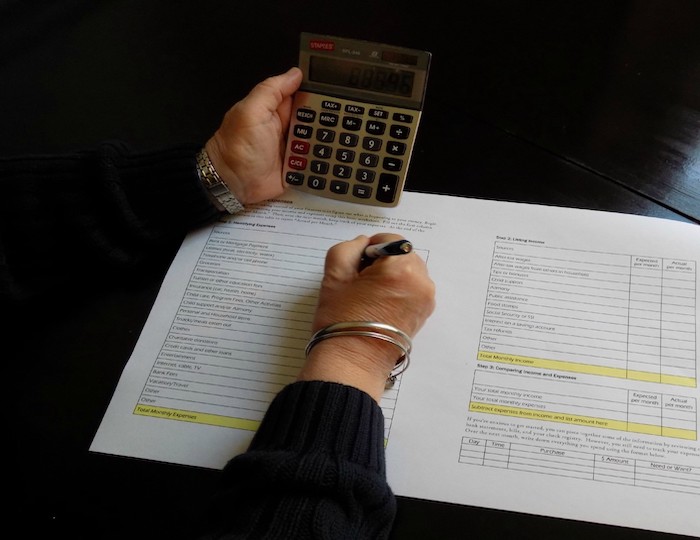How to Create a Budget for Your Freelance Business: Best Tips & Advice

Even though freelancers’ jobs may vary, every freelancer needs to plan and prepare a budget beforehand to cover different aspects of their freelance work and expenses.
To help freelancers create a budget for their freelance business, we are going to explore the numbers a freelancer would need to think about when creating a freelance budget to cover their work expenses.
In reality, there is a wide range freelance jobs in the market, but the way in which all freelancers budget for their freelance work expenses should be very similar (if not the same).
In this article, we offer tips and advice that extend to most types of freelancers – from freelance writers to freelance plumbers and freelance lawyers – to help you adequately plan for freelance work and mange your freelance business.
The Numbers - Freelance Budgeting Figures
We’re going to throw percentages and numbers at you, and you may wonder why you should accept them. You may even want to know which studies they were born from, or which academic journal published them.
Well, the numbers and percentages you find in this article are guidelines, and they are guidelines from raw experience. Yet, if you are still skeptical, look to your common sense.
Each number and percentage is explained, and if the explanations do not sit well with you, then disregard them.
With that out of the way, let’s dive in.
Budget Tips and Advise for Freelancers

1. Have a Contingency Fund
A freelance contingency fund needs to exist. You need to put 5% of your earnings into a savings account each month to act as your emergency fund. You can never touch it until you are in some serious or big mess...and a big mess will occur.
Life as a freelancer guarantees you two things: The first is that you can make a living if you work hard. The second is that life is going to trip you, and then kick you while you are down.
Life is going to have an uninsured driver smash into your parked car and drive off, and on the same day your PC will freeze and lock, and your biggest client will go missing for two months when payments are due.
Because of unexpected and serious situations like these, you need to have a spare amount of liquid money within arm’s reach if you wish to make it through life’s little freelance trials.
2. Underestimate All Earnings by 15%
Even if you have work lined up for the next few months and you can see how much you are going to earn, you need to knock around 15% off that amount if you want a real and genuine budget.
A lot is going to happen before you finally receive your pay. Your delivery person may lose your product or break your product, and you will need to give a refund. Your work could be rejected, and somebody is probably not going to pay at all or on time.
You may also have to give a discount because something was late, and somebody is going to squeeze you and lower your prices before paying. If you underestimated your earnings when creating and planning your freelance budget, it won't sting quite so much.
3. Overestimate All Expenses by 10%
Similarly, when planning and creating a budget based on your freelance work, overestimate all your expenses by about 10%.
Not only is this a smart thing to do, it is actually a sound future-planning protocol. Costs are going to go up every year no matter what you do. People who work on razor thin margins dread the coming years. People who have a 10% buffer are not as worried.
However, the 10% overestimation is not about future worries, it is about reality. It is about the fact that a machine is left on over the weekend and your electricity bill shoots up unexpectedly. It is about your vehicles breaking down and having to hire an outside delivery firm at further expense.
Your overestimation is there for when your supplier doesn't send enough materials, so you have to special order the rest from another company at a premium rate.
4. An Operating Fund Must Exist at All Times
If you do not pay people right away, such as your staff or suppliers, then you need the money in your accounts before you make the promise.
For example, if you hire somebody to work for a week, then you should have that person's weekly wage already in your accounts ready to pay at the end of the week.
If you make an order for 400 units to be paid at the end of the month, you need to have the money already in your account before you make the order.
This may sound impractical since many times you rely on the supplies or the worker to “make” the money that you need to pay them with, but you cannot run a business in this manner.
You need to get ahead of yourself, to put it in lay terms. And you need to have the operating money already in the bank before you make any form of contract or promise.
5. Measure Your Small Business Operations
Each and every small business operation needs to be measured so that you can calculate exactly how much each element costs, from the costs of running your machinery, to the cost of the coffee stirrers in your office kitchen. You can use financial tools such as an expense report software to help you organize and record business expenses.
There are two reasons for this type of in-depth monitoring. The first is so that you may accurately budget and plan for the coming months and years. It is impossible to create workable and accurate plans and budgets if you are not fully aware of how much you are spending.
The second is because as a freelancer, you cannot be wasteful, which means you need to find ways to save on your small business operations for your enterprise.
6. Forget Your Base Income
How does one abandon the basic principles of budgeting? After all, every business sets up budgets with a base income, and then maybe adds projections for extra work, good weeks, and so forth.
You are going to have to abandon this notion until you have between five and ten employees. Why ignore one of the tenants of budgeting, you ask?
Because as a freelancer you cannot be sure of your income. Unless you are working an exclusive contract for a company with a set income, then there is no way to know and guarantee your income.
Yet, while that is the academic reason for abandoning your base income budgeting, the real reason is because your base income is not a projection... it is a target.
7. Make Your Base Income a Target
As a small-time freelancer (with five or fewer staff helping you), your level of income is going to vary from week to week and month to month. It is better to abandon base income projections and create targets instead.
Take your total outgoings, and then add on the 10% as suggested earlier. Once you have that figure, add on 20%, and that is your target.
Your base target it to make that figure. If done correctly, you should cover all your expenses and make around 20% profit if you hit your target.
If your target is to make your bills and then earn profit, then you can work without burning out. You are able to decide how much you work, within reason. And, this is going to be good for your state of mind.
Your state of mind is especially important if you are a freelance writer because it is a very solitary profession that often comes with lots of psychological baggage.
In Conclusion – What to Do?
Doesn’t this article put a lot of emphasis on how unlucky a freelancer will be in their job? After all, freelance writers, in particular, are unlikely to fall off ladders or electrocute themselves while drilling through walls, so why always assume the worst.
The simple answer comes from the famed Roman statesman and philosopher Cicero, who said that you should expect the best and prepare for the worst (46 BC). Also, when times get hard, you will find that it is good to have buffers such as over/under-estimated budgets.
And as Franz Kafka would say, “Better to have, and not need, than to need, and not have.”






















